Stuart James Forrest
I was, continued to be, inspired by great movies like “Wait Until Dark, Failsafe, Judgement at Nuremberg, The Godfather, etc. I stay motivated by the challenge to write a script that professionals might consider competent.
I try to free write every day. I have many ideas that go nowhere. When I have an idea for a story that I want to pursue as a project, I ask myself, “Why should anyone be interested in your idea? What are you going to write that will be entertaining?” I then try to write the screenplay from beginning to end with no discipline or plan. I end up with a mess. I read it and decide if I can turn the mess into a complete project that people can appreciate. Then I edit, cut, edit, cut in a cycle until I think I’ve exhausted the process.
I often think of characters ans character histories from people that I encounter. Sometimes I try to imagine a personality from the qualities that I want to give life to. As a result, I have notes upon notes of saved character types that I use. I read about similar people in stories, movies or historical events and try to imagine the histories that shaped them.
I’m writing about a freelance computer programmer named Bet Diamond. Through a strange mishap he acquires invulnerability. He cannot be killed, injured, or victimized by disease. Unfortunately, that’s all. He is no stronger than normal and he still feels every bit of pain as anyone else. He has adventures that require great physical risk. As a result, he suffers terrible agony but eventually heals. As a result, he is extremely cautious about the kinds of risks he takes.
I feel that it is unique because Bet’s “super power” doesn’t make him “powerful” in the Superman sense. If he is shot he will be incapacitated and in agony until he heals. He doesn’t die, so people don’t understand why he doesn’t embrace his “super power.” I intend to showcase it by fate forcing Bet into bizarre dangerous situations he doesn’t want because of the risk of great agony.
I’m realistic. Producers, directors, etc., won’t buy my scripts. I’m an unknown. No one is going to risk money on an unknown even if they like the work. I have written about ten screenplays. I like writing them and I will continue to do so as long as it gives me pleasure. At some point, I’ll compile them into a book and publish them.
A judge in a screenplay competition, who considered my work to be professional, wanted it to include many “woke, political, trends that I felt would come across as forced and a distraction. Fortunately, like a man who has everything, I am a man with nothing, I could afford to walk without regret. So, I did.
Unfortunately, some film organizations believe that A.I. assisted writing, remakes, and politics over creativity, are good for the industry. I think Disney and Netflicks will do themselves (and their shareholders) a great deal of harm until they return to the “art” or storytelling. I want to write good stories that people like without sermonizing side issues that aren’t essential to the story.
Don’t write just to get a buck or praise. Write because that’s what you do.
I want to write a screenplay that God will buy a ticket to see.
